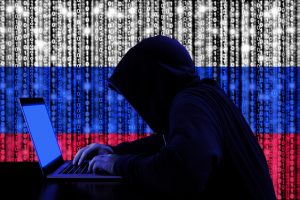
Russia seems to be the focus of election-influencing and hacking reports within the last few years.
This trend looks to continue as the Government Communications Headquarters (GCHQ) in Cheltenham recently alerted the leaders of political parties in Britain of a possible cyber security threat from Russian hackers.
The organization was quick to emphasize on how the cyber security threat can affect the democratic process in Britain.
According to reports, GCHQ called for an emergency summit in efforts to inform and educate Britain’s politicians on the cyber security threat and how it could affect the next election.
This has happened following the accusations that entities from the Kremlin orchestrated cyber-attacks in order to influence the outcome of elections in the United States and Germany.
According to a report documented by The Sunday Times, Ciaran Martin penned a letter to the leaders of Britain’s major political parties that addressed the cyber security issue.
Ciaran Martin is the chief executive of National Cyber Security Centre (NCSC), a division of GCHQ.
Martin wrote to advise the politicians on the ways to prevent and mitigate the Russian hacking attacks.
The letter also brought attention to the reports of cyber security concerns around the world, including Germany and the United states.
There have been strong suspicions that Russian hackers were either directly or indirectly involved in influencing the US elections in 2016.
Among the main accusations is the leakage of 20,000 emails tied to US Democratic National Committee.
It is important to note that contrary to popular belief, the accusation centered on the breaching of the political party’s system rather than the actual US elections systems.
In 2015, they were accused of breaching the IT network of the German Parliament.
In December 2016, Germany’s domestic intelligence chief mentioned that a Russian-backed hacking group was conducting aggressive cyber espionage.
In light of these events, GCHQ warned of the potential for UK’s political system to be a target of aggressive cyber actions.
Ciaran Martin also stated that the cyber security concerns are not constrained to the network security of the systems utilized by Britain’s political parties.
Potential Russian influence through hacking could encompass various other sectors including Parliament, constituency offices, pressure groups, policy/research institutes, and personal email accounts.
It looks like GCHQ’s assistance in improving cyber security will involve working on the security of personal data sets, such as voter identification data and the election role according to information provided to The Sunday Times by a senior government source.
According to security sources from GCHQ, the primary apprehension is that Kremlin-supported hackers might breach and leak in-house emails or private databases.
This past February, Ciaran Martin warned of 188 high-level cyber-attacks that affected the UK within the previous three months.
Martin reiterated that a considerable percentage of these attacks threated Britain’s national security.
Former defense and foreign secretary Chancellor Phillip Hammond augmented this claim, stating that the NCSC has been successfully tackling over 200 daily cyber-attacks on government departments as well as the public.
This has been the case for the past 6 months.
It is, however, important to note that there seems to be no conclusive evidence of successful cyber-attacks on the UK at the moment.

This is going by remarks made by Foreign Secretary Boris Johnson.
Nonetheless, Johnson added that there is concrete evidence of Russian ability to influence the British elections and present major cyber security concerns.
In the coming weeks, Johnson is scheduled to meet his Russian counterpart.
He did not mince his words when speaking to ITV’s Peston, claiming that Russia has always had a backhand when it comes to matters of political interference.
Among the accusations he forwarded against Russia included taking down a French TV station, orchestrating the attempted assassination of the prime minister of Montenegro, and hacking the US Democratic National Convention.
He was very clear on the aforementioned lack of evidence of the cyber security concerns in regards to British elections, but noted that the potential is indeed there.
As expected, Russia has denied all of these allegations.
